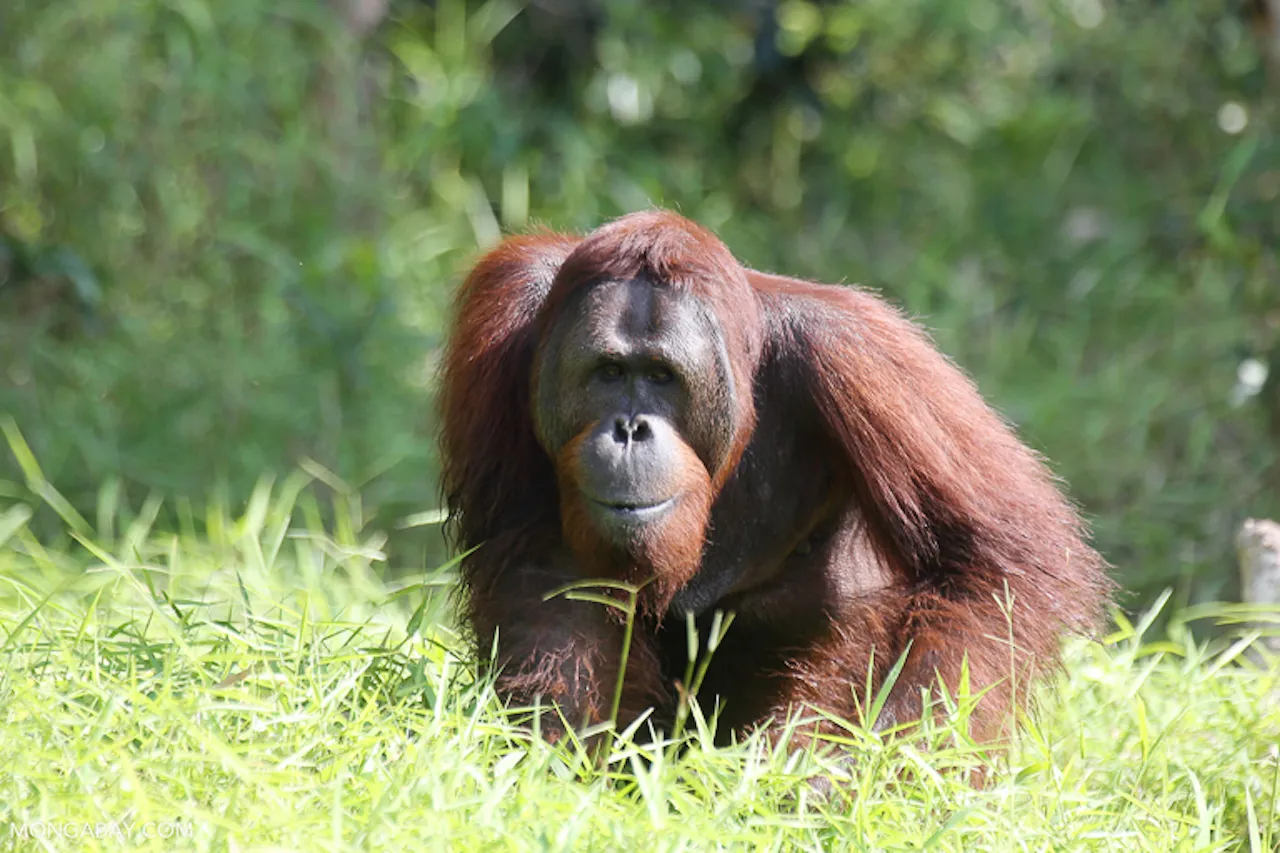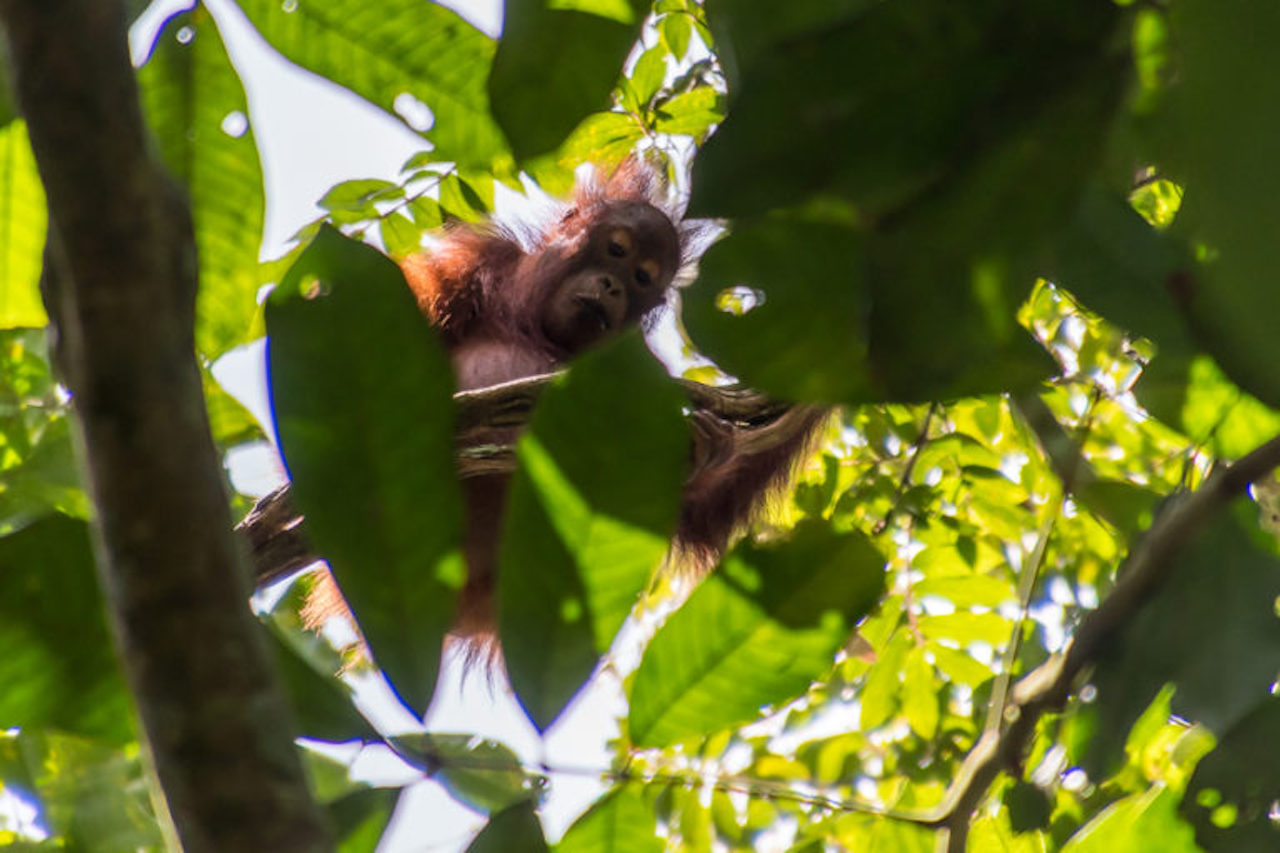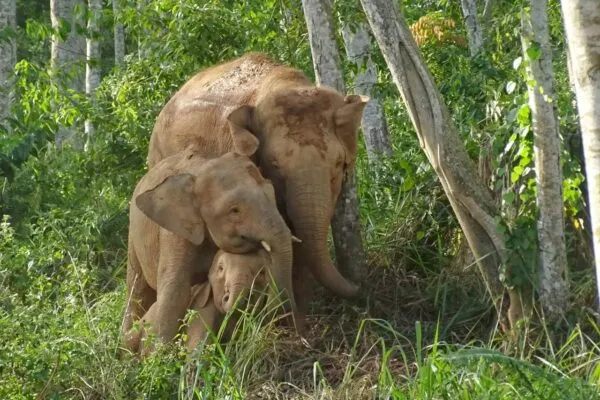Rising Deforestation Puts Bornean Orangutan Habitat in Peril
Habitat loss due to deforestation indicates a future loss of 45,300 orangutans between 2020 and 2050

Image: Rhett A. Butler/Mongabay
Orangutans are the largest tree-dwelling mammals and great apes boasting reddish hair and big brown eyes. They live in the rainforests of Sumatra and Borneo in Southeast Asia. They are also called our distant cousins, as orangutans share around 97 percent of the same DNA as humans. But once a thriving, man-like orangutan species is now at the risk of extinction due to increasing deforestation in Borneo.
According to a recent study – published in the journal Perspectives in Ecology and Conservation – Borneo faced forest loss of around 59,949-square-kilometer between 2000 and 2017. Researchers also predicted that the increasing deforestation trend would further lead to the loss of around 74,419-square-kilometer of forest between 2018 and 2032. That study also mentioned the habitat and future loss of around 45,300 orangutans (out of the total worldwide population of only 100,000 orangutans) between 2020 and 2050.
Even Maria Voigt, the lead author of the new study, stated that habitat loss projection is due to the increasing rate of deforestation. The new analysis is based on a new deforestation model that checks additional drivers and the increasing pace of deforestation.

Image: John C. Cannon/Mongabay
Voigt, who is also a researcher at the Max Planck Institute for Evolutionary Anthropology in Germany, along with her colleagues applied the deforestation model to orangutans in around five Indonesian provinces and two states in Borneo.
As per the new model, researchers found a major impact of deforestation in the areas that already faced forest loss before. This is due to the high demand for industrial oil palms and timber. Only the protected areas were found with a low impact of decreasing forest cover.
The study also revealed that the highly deforested areas were among the natural habitat for orangutans, putting them at risk. To protect and conserve the population of orangutans, the study’s authors suggest taking immediate conservation measures like sustainability certificate schemes, corporate zero-deforestation pledges, a halt on land clearing, and ecosystem restoration.
Orangutans are also called the “umbrella species,” as they attain large forest tracts for survival. Protecting them can also save other wildlife in forests. Besides the wildlife conservation actions, the authorities also have to form adaptive potential changes to protect the species from unwanted threats.
Via: Mongabay


